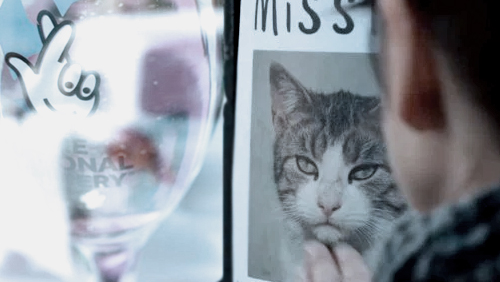The UK National Lottery’s attempt to show its humorous, witty side has backfired on the lottery company.
 Several weeks ago, the National Lottery launched a new campaign, titled “No Chance,” which involves a series of online short films that target both frequent online lottery players and those whose online behavior and profiles are similar to people who play Lotto or EuroMillions online.
Several weeks ago, the National Lottery launched a new campaign, titled “No Chance,” which involves a series of online short films that target both frequent online lottery players and those whose online behavior and profiles are similar to people who play Lotto or EuroMillions online.
But the campaign’s latest video has earned the National lottery not accolades, but vicious tongue lashings from viewers, particularly from animal lovers.
The 30 second video shows a woman tearfully posting “missing cat” leaflets to signposts next to the busy A202 road, which runs through south London. The woman placed a loving kiss on the photo of her missing 6 year old cat, George, before walking away. Then, a shot of the fast-moving cards, which suggests how the tabby met its fate.
The woman then heads to a café, where she played lottery on her phone. A video description then read: “Hoping your missing cat will turn up when you live next to the A202? No chance!
“But try GameStore for a 1 in 4 chance of winning. #BetterChances.”
Camelot, which operates the UK National Lottery, received complaints from hundreds of people right after the video was first aired on Facebook. Viewer Treena Greany, who called the lottery “filthy cheap lowlifes,” was quoted by the UK’s Express saying: “My cat got run over and killed and I’ve never got over it. You may have everyone talking about your advert, very clever. But you filthy cheap lowlifes won’t get another penny from me ever again.”
The missing cat advertisement is one of a series of six short films as part of the “No Chance” campaign, which the National Lottery launched to promote its GameStore sub-brand. The campaign came at a time just as the National Lottery is trying to woo back punters—with flowers and dinners nonetheless—who have threatened to boycott its games after the lottery added 10 more balls to its set of 49.
The National Lottery has already apologized for its “tongue-in-cheek” ad that the company said was fictionalized and “not intended to offend.”